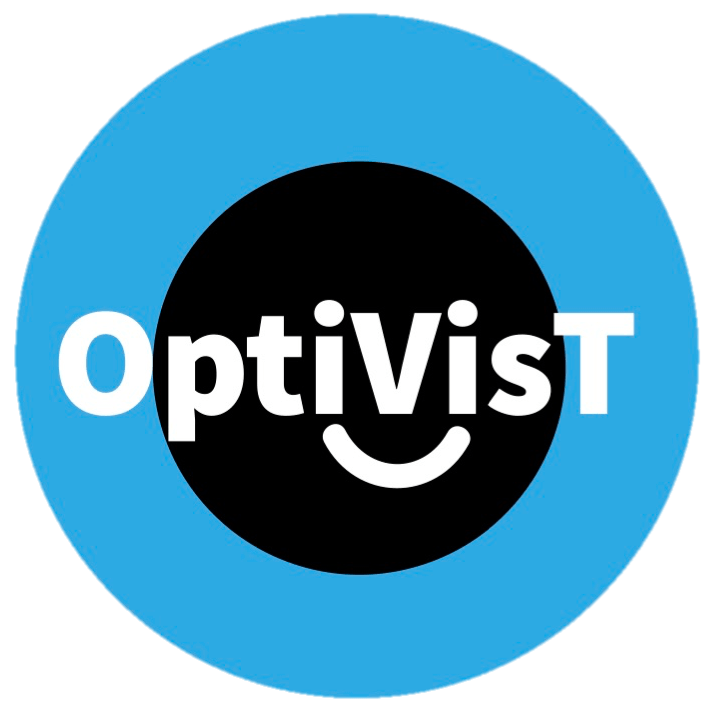PROJECT 1
Assessment of functional vision using eye-tracking, virtual- and augmented reality and artificial intelligence
Why? While we understand quite well how vision impairment impacts performance in relatively simple laboratory vision tasks (e.g. visual search), we still cannot predict performance in more complex dynamic situations, including daily activities such as crossing a road, sports, or riding a bike. We know even less about how people with impaired vision complete these tasks because we do not yet fully understand the visual and sensorimotor demands of many complex daily activities. Accordingly, it is unclear what aspects of vision we should examine when we want to predict a person’s functional vision. The aim of this project is to identify (new) behavioral biomarkers that are predictive of daily life functional vision.
How? We are at an exciting moment in time where new solutions have become available to tackle the above problem due to recent developments in eye tracking, artificial intelligence, and virtual- and augmented reality. We will use these techniques to develop and apply intuitive vision tests that may include simple sensory-motor tasks (e.g. pursuit, ocular and pupillary reflexes), more complex tasks (e.g. attention, recognition) and daily life tasks. To simplify and speed-up testing, tests will use continuous psychophysics and assessment of gaze using (stereo- and calibration-free) eye tracking. Potential biomarkers will first be established in controls of different ages with and without simulations. Using machine learning, the biomarkers will be used to predict (and verify) performance of vision-impaired people in activities of daily life and Quality-of-Life. Tools should also enable testing in presently-difficult-to-assess patients.
Where? You will join the Visual Neuroscience (VNS) group of the Laboratory of Experimental Ophthalmology of the University Medical Center Groningen (Groningen, the Netherlands) under supervision of Prof. Frans W. Cornelissen. The lab has an interest in improving ophthalmic diagnosis, visual rehabilitation and better understanding the origins of ophthalmic disease as well as vision in general. The VNS group has a range of state-of-the art eye trackers and ophthalmic equipment available. In this project, we will collaborate with the Donders Institute (Nijmegen, NL), the Italian Institute of Technology (Genova) and two companies (Reperio (NL) and AST (DE)).
What can you expect to learn and experience? You wiil learn about behavioural and psychophysical methods including various types of perimetry, (stereo-) eye-tracking technologies and assessments and dvanced analytics, including deep learning. Ophthalmic evaluation of (vulnerable) patients; assessments using modern ophthalmic imaging techniques (OCT).
Who are we looking for? Our ideal candidate is interested in answering fundamental and applied questions in vision science and in using both tried-and-trusted as well as modern technology to make a difference for (visually impaired) patients. You are a team player, but can also self-motivate and work independently. Knowing how to program (e.g. matlab, psychtoolbox) and having experience with analysis, statistics and visualization of larger datasets is beneficial. You have excellent English oral presentation and writing skills.
References
- Birte Gestefeld, Alessandro Grillini, Jan-Bernard C. Marsman, Frans W. Cornelissen; Using natural viewing behavior to screen for and reconstruct visual field defects. Journal of Vision 2020. doi: https://doi.org/10.1167/jov.20.9.11.
- Grillini Alessandro, Renken Remco J., Vrijling Anne C. L., Heutink Joost, Cornelissen Frans W. (2020). Eye Movement Evaluation in Multiple Sclerosis and Parkinson's Disease Using a Standardized Oculomotor and Neuro-Ophthalmic Disorder Assessment (SONDA). Frontiers in Neurology. https://www.doi.org/10.3389/fneur.2020.00971
- Grillini A, Ombelet D, Rijul S. Soans, and Cornelissen FW (2018). Towards Using the Spatio-temporal Properties of Eye Movements to Classify Visual Field Defects. In ETRA ’18: 2018 Symposium on Eye Tracking Research and Applications, Warsaw, Poland. ACM, New York, NY, USA,
https://doi.org/10.1145/3204493.3204590
Project output
No output yet.

